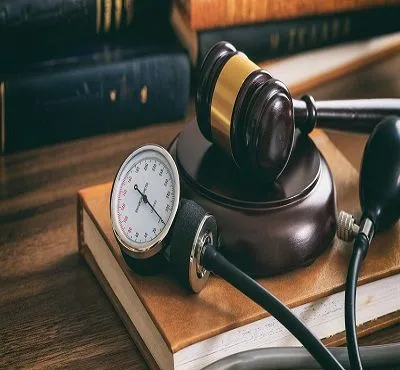More than 20 million surgeries are performed in the United States every year. But not all surgeries or procedures are equally serious or risky. While some medical procedures can be completed on an outpatient basis within minutes, other surgeries are multi-hour marathons that require a lengthy hospital stay and carry additional risk. Given that the primary reason that people seek a doctor’s care is to address a medical issue, not every patient will see a successful outcome and some of these individuals will be victims of medical malpractice.
Rather than improving their health, victims of medical malpractice are worse-off for relying on a doctor to help them be well. Because doctors and other medical professionals are humans rather than infallible machines, the law entitles patients injured by their potential recklessness, negligence, omissions, and carelessness to compensation that will make them whole again. A lawyer who focuses their practice on medical malpractice can guide individuals who have been injured while under their physician’s care and help them determine whether pursuing a legal claim is the best course of action.
Defining Medical Malpractice
By definition, medical malpractice occurs when a doctor or other healthcare professional fails to uphold their required standard of care, whether by negligence or omission, and the patient suffers an injury. While some malpractice-related injuries can be rectified quickly, others might leave patients with long-term health issues. Because of the potential long-term impact that malpractice-related injuries can have, seeking assistance from a competent medical malpractice lawyer can improve your chances of a successful legal recovery. Here are five situations in which it is often best to hire a legal professional for representation:
- Surgical Blunders

Surgical mishaps can also happen when a medical professional leaves surgical equipment inside the patient’s body, sometimes leading to medical complications that lead to additional surgery.
These are some examples of surgical mishaps:
- Failure to give adequate care post-surgery
- Performing the wrong surgery
- Leaving medical equipment inside the patient’s body
- Unnecessary surgery
- Using nonsterile surgical tools
- Administering too little or too much anesthesia
- Damaging organs, tissues, and nerves
- Misdiagnosis
When a medical professional fails to diagnose the patient with the accurate medical condition, a patient may experience complications. In this situation, a medical malpractice attorney can guide you, especially if the doctor starts behaving rudely with you due to the false diagnosis.
- Delayed Diagnosis
Delayed diagnosis is another actionable form of malpractice if it results in an injury. This type of malpractice claim is similar to misdiagnosis. In the case of a delayed diagnosis, a doctor might have diagnosed the right correct condition, but the diagnosis was delayed because of the doctor’s fault or negligence. Consulting with a Philadelphia medical malpractice lawyer can help you determine your best course of action following a delayed diagnosis.
- Birth Injury
When a doctor is negligent when delivering a baby and fails to properly treat the mother, birth injuries can occur. A doctor’s negligence can lead to serious injury or death for the baby and the mother. If a birth injury occurs, the injured mother or her family can consult with a medical malpractice lawyer to determine whether they can successfully seek compensation.
- Incorrect treatments
Only half the doctor’s work is complete when a doctor reaches the correct diagnosis. If the medical professional fails to provide the right treatment after the diagnosis, patients can get seriously injured. Wrong treatments may include incorrect medications, therapies, procedures, or surgeries. Incorrect treatments also include wrong dosages or medication strengths.
Determining Whether Malpractice Occurred
Medical malpractice is one of the most complicated areas of personal injury law because the human body and medicine are so complex. When legal ramifications enter the mix, the situation becomes even more tricky. This is why medical malpractice victims should consult a qualified attorney.
A lawyer can help determine whether malpractice occurred and, if so, the best course of action.. In a medical malpractice claim, an experienced lawyer can work to prove the following:
- The medical professional acted carelessly, recklessly, or negligently
- The patient and the medical professional shared a doctor-patient relationship
- The medical professional’s actions caused the patient’s injuries
- The injuries resulting from the medical professional’s actions caused suffering and other damages
An experienced attorney can make all the difference in pursuing a medical malpractice claim. Following medical malpractice, consulting with a lawyer can guide the victim on the road to recovery.
If someone else caused you harm, you may qualify for monetary compensation for your losses and damages. However, you need to prove your innocence as well as others’ faults. In this process, a Philadelphia injury attorney can help you. They can assist you with important tasks such as filing a strong claim, gathering valid documents that support your claim, and coordinating with insurance companies or eyewitnesses. Hire a skilled attorney to increase your chance of getting the compensation you deserve.
